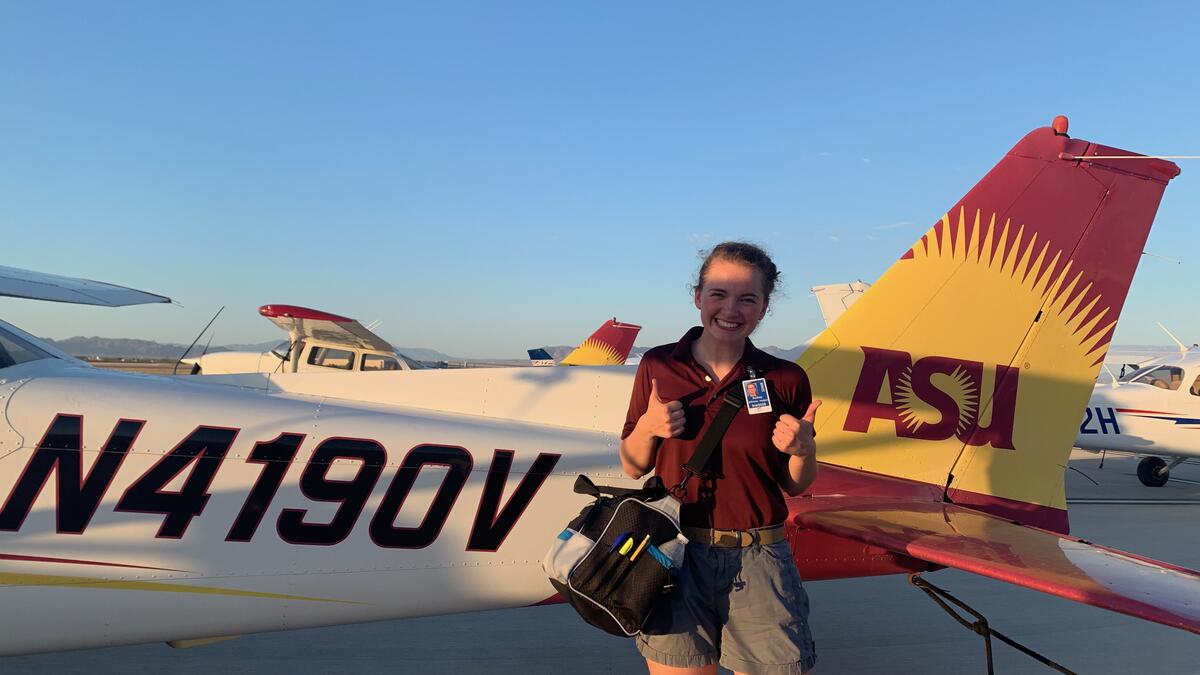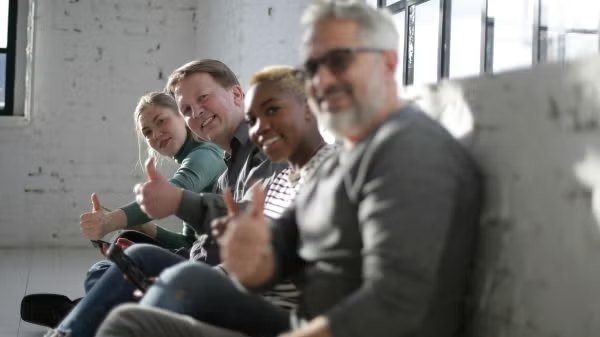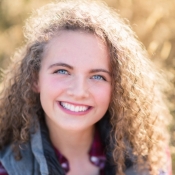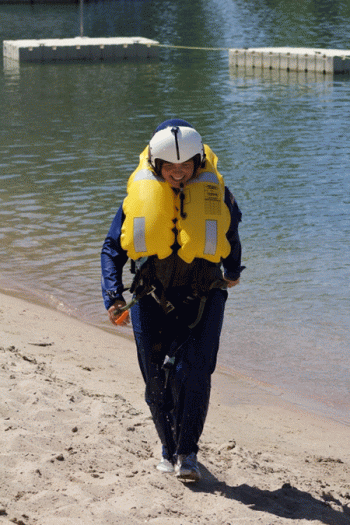ASU honors graduate's opportunities are taking flight

Audrey Schlichting graduates this month with two bachelor's degrees - one in aeronautical management technology (professional flight) and another in engineering (mechanical engineering systems) from the Ira A. Fulton Schools of Engineering - with honors from Barrett, The Honors College at ASU.
Editor’s note: This story is part of a series of profiles of notable fall 2023 graduates.
Audrey Schlichting’s future is soaring.
Schlichting graduates from Arizona State University magna cum laude in December with two bachelor’s degrees — one in aeronautical management technology (professional flight) and another in engineering (mechanical engineering systems) from the Ira A. Fulton Schools of Engineering — and with honors from Barrett, The Honors College at ASU.
She has accepted a job as a flight deck crew operations engineer with Boeing Co. in Washington state, where she’ll work on making airplane cockpits more ergonomic, efficient, and elegant.
In addition to completing two degrees while at ASU, Schlichting, who is from Ferndale, Washington, fulfilled the requirements and many hours of flight training to receive certifications as a Commercial Single Engine Pilot, Commercial Multi Engine Pilot with Instrument Rating, and Part 107 Remote Pilot.
She also participated in the Grand Challenges Scholars Program in the Fulton Schools of Engineering, which encourages students to apply an entrepreneurial mindset to develop creative solutions to problems. Her student team designed a theoretical photosynthetic paint that could be applied to a variety of outdoor surfaces to provide an alternative source of carbon sequestration through photosynthesis.
Schlichting also worked with Lukas Severinghaus, a fellow student in Barrett Honors College at the ASU Polytechnic campus and a robotics major, on an honors thesis titled “Manna: An Autonomously Guided Parachute Delivery System,” an automated, low-cost, safe airdrop system consisting of a parafoil and guidance unit. They presented their project at the Barrett Honors College's Celebrating Honors Thesis Symposium in April.
She received many scholarships, including the New American University Provost’s Award, Angela LaClair Memorial Scholarship, S.P. Roper Thunderbird Scholarship, Evergreen State Award, Michelle L. Chaudoin Scholarship in Aviation, Justine and Natalie Firestone Scholarship for Entrepreneurship in Aviation, Joyce Corrigan Scholarship, and the Barrett Domestic Travel Award.
Schlichting completed a summer internship as a quality engineer at Able Aerospace Services in 2021 and worked as a flight test engineer for Textron Aviation Defense in 2022.
She founded two student organizations, Poly on Wheels and the Polymetric Music Club, and was an active member and leader of Campus Ambassadors, a faith-based organization for students. In addition, she was a mentor for professional flight students in Barrett Honors College and a hall host at the ASU Polytechnic campus.
As Schlichting’s undergraduate career comes to a close, she looks back fondly on her experiences.
Question: What is an interesting moment, story or accomplishment in your ASU career?
Answer: Working for Textron Aviation as a flight test engineer, I had the opportunity to complete water training and ejection-seat training as part of my job.
Q: What was your “aha” moment when you realized you wanted to study the field you majored in?
A: I chose to double-major because of my love for aviation, inspired by Civil Air Patrol, and my love for inventing, inspired by my dad.
Q: What’s something you learned while at ASU — in the classroom or otherwise — that surprised you or changed your perspective?
A: While traveling to Mexico and Honduras on mission trips with Campus Ambassadors, I learned the importance of relationships, compassion and genuine love for others. I also had the opportunity to start two clubs on campus during the pandemic, which only solidified how much we are relational beings who desire to be in community with one another.
Q: Why did you choose ASU?
A: I chose ASU because of the flight program, the good flying weather and the loving atmosphere I experienced on my introductory visit.
Q: Why did you choose to be in Barrett?
A: I’m challenge-driven and love to learn. The honors college was an obvious opportunity to push myself academically and pursue harder and more rewarding academics. I was introduced to Barrett Honors College by a pamphlet in the mail, leading me to an introductory visit where I participated in the Barrett Overnighter program prior to the pandemic. I absolutely loved the community and driven environment.
Barrett has provided me with ample opportunities to grow in my career by giving me funding to pursue my thesis research and to travel and represent ASU at the 2022 Society of Women Engineers conference.
Q: Which professor taught you the most important lesson while at ASU? What was that lesson?
A: Michael Dickens, advisor for Campus Ambassadors, has been my mentor for my entire college career. He encouraged me, patiently listened to me, and walked with me through incredibly difficult times at ASU. He showed me that being patiently present with a listening ear in relationships, speaking to others in love and walking in growing maturity with the Lord is the greatest treasure, and he led by example. Thank you, Myke, for reminding me of what the best treasure is.
Q: What’s the best piece of advice you’d give to those still in school?
A: Academics will always be there, but the people you are with won’t always be there. Be present, grow in relationships with others and choose joy. It is such an honor to be able to go to school and get an education.
Q: What was your favorite spot on campus, whether for studying, meeting friends or just thinking about life?
A: My favorite spot on the ASU Poly campus is Nesbit Plaza. From the corner of the plaza, I was able to watch people walk through the heart of campus, process what’s going on in life and reflect in a quiet and beautiful place.
Q: If someone gave you $40 million to solve one problem on our planet, what would you tackle?
A: Homelessness in Seattle breaks my heart. Three hundred and ten homeless people died last year in the Seattle area. Each one of those men and women is a child of a parent. They have a collective average age of 48 years old at death. With approximately 13,000 homeless people in Seattle and this number rapidly rising every year, the death toll will only rise. Forty million dollars could pay for an apartment complex that houses approximately 300 people. What if this could offset the cost of living so much that those 300 who died could have had a chance at a new life? My heart aches for the world to be restored.
More Science and technology
Statewide initiative to speed transfer of ASU lab research to marketplace
A new initiative will help speed the time it takes for groundbreaking biomedical research at Arizona’s three public universities…

ASU research seeks solutions to challenges faced by middle-aged adults
Adults in midlife comprise a large percentage of the country’s population — 24 percent of Arizonans are between 45 and 65 years…

ASU research helps prevent substance abuse, mental health problems and more
Smoking rates among teenagers today are much lower than they were a generation ago, decreasing from 36% in the late 1990s to…



